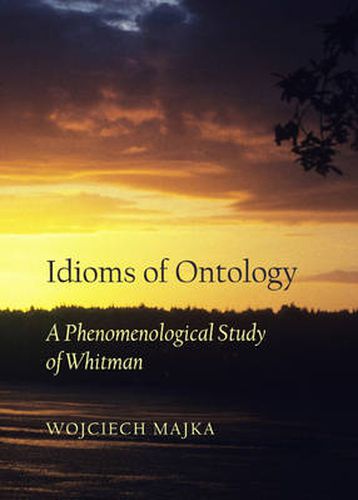Readings Newsletter
Become a Readings Member to make your shopping experience even easier.
Sign in or sign up for free!
You’re not far away from qualifying for FREE standard shipping within Australia
You’ve qualified for FREE standard shipping within Australia
The cart is loading…






Without a doubt, Walt Whitman is one of the most philosophical poets. His writings are overflowing with conceptions that range from the Presocratics to Hegel. Nevertheless, the philosophical aspect of his work has been neglected with scholars satisfying themselves in making loose allusions to transcendentalist ideas that are said to respire in his writings. Therefore, our attention has been drawn to the connection of his poetry with philosophy (phenomenology), since as Emanuel Levinas once stated, the whole of philosophy is only a meditation of Shakespeare. Therefore, this book throws the Whitmanesque self into a typically phenomenological context, silhouetting the notion of selfhood against the views of Martin Heidegger, Maurice Merleau-Ponty and Emanuel Levinas. Moreover, the book differentiates between the overall understanding of subjectivity and selfhood. The former corresponds to the representative capacities of the Cartesian cogito, which in itself is detached from the world of life. On the other hand, selfhood is defined though the idea of commitment to the overall mattering of the world, which in itself is not reduced to the materialist or idealist understanding. Rather, the world is what phenomenology - following Husserl - calls Lebenswelt, which corresponds to the general way in which the self finds itself attuned to the horizon of its existence.
$9.00 standard shipping within Australia
FREE standard shipping within Australia for orders over $100.00
Express & International shipping calculated at checkout
Without a doubt, Walt Whitman is one of the most philosophical poets. His writings are overflowing with conceptions that range from the Presocratics to Hegel. Nevertheless, the philosophical aspect of his work has been neglected with scholars satisfying themselves in making loose allusions to transcendentalist ideas that are said to respire in his writings. Therefore, our attention has been drawn to the connection of his poetry with philosophy (phenomenology), since as Emanuel Levinas once stated, the whole of philosophy is only a meditation of Shakespeare. Therefore, this book throws the Whitmanesque self into a typically phenomenological context, silhouetting the notion of selfhood against the views of Martin Heidegger, Maurice Merleau-Ponty and Emanuel Levinas. Moreover, the book differentiates between the overall understanding of subjectivity and selfhood. The former corresponds to the representative capacities of the Cartesian cogito, which in itself is detached from the world of life. On the other hand, selfhood is defined though the idea of commitment to the overall mattering of the world, which in itself is not reduced to the materialist or idealist understanding. Rather, the world is what phenomenology - following Husserl - calls Lebenswelt, which corresponds to the general way in which the self finds itself attuned to the horizon of its existence.